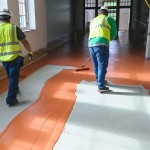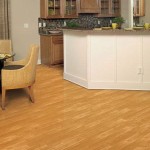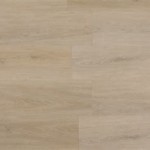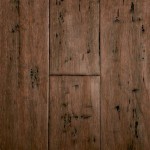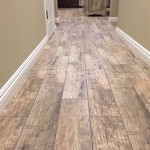Flooring for Concrete Slabs: Essential Aspects
Concrete slabs provide a solid and durable foundation for various flooring options. However, choosing the appropriate flooring material for a concrete slab is crucial to ensure longevity, aesthetics, and functionality.
Considerations for Flooring on Concrete Slabs
Several factors must be considered when selecting flooring for a concrete slab:
- Moisture Level: Concrete slabs can contain residual moisture, which can damage some flooring materials. It's essential to check the moisture level before installing flooring.
- Flatness and Levelness: Concrete slabs may have imperfections or unevenness that can affect the installation and performance of flooring.
- Load Capacity: The weight of the flooring and any furniture or equipment must be considered to ensure the slab can support the load.
- Underlayment: An underlayment can provide a moisture barrier, sound insulation, and leveling surface for the flooring.
Types of Flooring for Concrete Slabs
Various flooring options are suitable for concrete slabs, including:
- Tile: Ceramic, porcelain, and natural stone tiles are durable and water-resistant, making them ideal for moisture-prone areas.
- Laminate: Laminate flooring is a budget-friendly option that mimics the look of wood or stone.
- Vinyl: Vinyl flooring is water-resistant and offers a wide range of styles and textures.
- Carpet: Carpet provides warmth and sound insulation but requires regular maintenance to prevent stains and odors.
- Epoxy: Epoxy flooring is a durable and chemical-resistant option for industrial and commercial settings.
Installation Considerations
Proper installation is essential to ensure the longevity and performance of flooring on concrete slabs:
- Moisture Testing: Conduct a moisture test to determine the moisture level in the concrete slab before installing flooring.
- Leveling and Flattening: If the slab is not level or flat, use a self-leveling compound or leveling pads to create a smooth surface.
- Underlayment Installation: Install an underlayment appropriate for the flooring material to provide a moisture barrier, sound insulation, and leveling surface.
- Flooring Installation: Follow the manufacturer's instructions for installing the flooring, using the appropriate adhesives or fasteners.
Conclusion
Choosing the right flooring for a concrete slab requires careful consideration of the moisture level, flatness, load capacity, and desired aesthetics. By selecting the appropriate flooring material and ensuring proper installation, you can create a durable and functional flooring system that enhances the overall design and functionality of the space.

Best Flooring For Concrete Slabs 50floor

Concrete Slab Floors Yourhome

Q A Solid Wood Floors Over Concrete Slabs Jlc

Concrete Slab Floors Yourhome

Concrete Slab Coating Solutions Using Epoxies Coatingspro

Concrete Floor Slab Construction Process The Constructor

Best Flooring For Concrete Slabs 50floor

Installing Wood Flooring Over Concrete Diy

8 Benefits Of Building A Home With Polished Concrete Floors 2024 Designer

Concrete Floors Pros Cons Of Flooring Network
Related Posts

